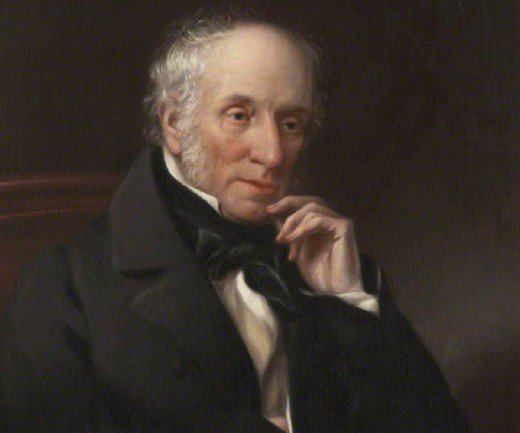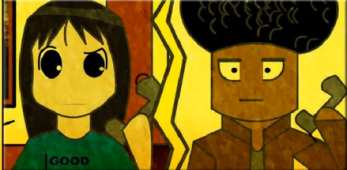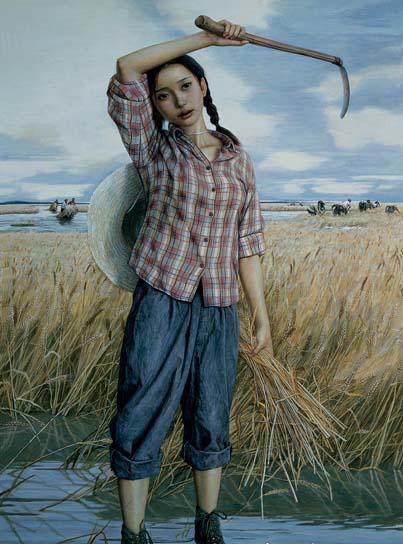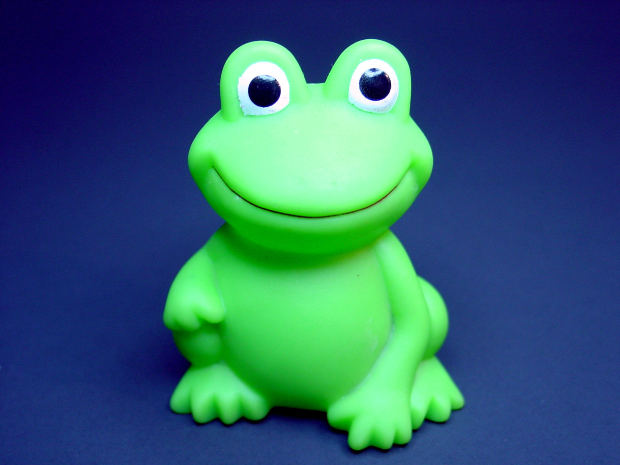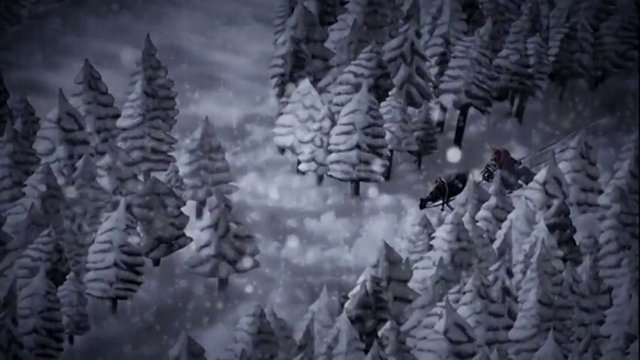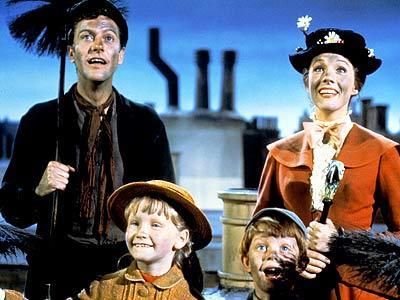About the poet: Conceived on June 20, 1952 , Vikram Seth is a well known Indian writer, author, travel essayist, librettist, kids’ author, biographer and memoirist. His dad, Prem Seth, was a shoe organization official and his mom, Laila Seth, served as a judge. Conceived in Kolkata, Vikram Seth’s youth was spent in the town of Batanagar close Calcutta, Patna, and London. He did his education from The Doon School in Dehradun. He took his college degree in reasoning, legislative issues and financial matters from Oxford University. He was selected in postgraduate financial aspects courses at Stanford University and was additionally appended to Nanjing University for his expected doctoral paper on Chinese populace arranging. Seth’s works display an assortment of subjects taking into account his encounters and ventures.
In spite of the fact that Seth’s first volume of verse, Mappings, was distributed in 1980, he didn’t draw in basic consideration until the production of his clever travelogue From Heaven Lake (1983), the tale of his voyage catching a ride from Nanking to New Delhi through Tibet. The beautiful art of The Humble Administrator’s Garden (1985) portends the shine of The Golden Gate, a novel of the pop culture of California’s Silicon Valley, composed completely in metred, rhyming 14-line stanzas and in light of Charles Johnston’s interpretation of Aleksandr Pushkin’s Eugene Onegi. Seth kept on utilizing controlled poetic form as a part of his 1990 gathering All You Who Sleep Tonight, and he likewise composed the 10 stories of Beastly Tales from Here and There (1992) in tetrametre couplets. A gathering entitled The Poems, 1981–1994 was distributed in 1995. He swung to writing, on the other hand, in A Suitable Boy, which delineates relations between four Indian families. The book’s convincing story and incredible length welcomed basic correlations to Leo Tolstoy, Marcel Proust, James Joyce, Honoré de Balzac, and Charles Dickens. He has gotten a few honours including Padma Shri, Sahitya Akademi Award, Pravasi Bharatiya Samman, WH Smith Literary Award and Crossword Book Award.
About the poem: A poetic version of the moral tale of a crocodile and a monkey from the Panchatantra, The crocodile and the monkey by Vikram Seth is one of the poems from Seth’s Beastly Tales from Here and There, which is a collection of moralistic poems with animals depicting human traits. In the poem, a wife’s needs displace a friend’s. Mrs. Crocodile is drawn as a zaftig, scaly monstrosity with the expression of a nagging, vain, cuckolding wife. A good monkey may be hard to find, but Kuroop the crocodile has no choice but to satisfy his wife’s prandial passion by acquiring the mango-rich heart of the monkey. Only a foolish monkey would be so kind as to give a lowly crocodile the freshest mangoes from the trees.
Kuroop the crocodile falsely convinces the monkey to attend their home across the river for a dinner. While the monkey rides upon his back, Kuroop generously offers him a choice as to the manner of death. But the monkey is not so easily duped by trickery. By cleverly stating that he never carries his precious heart with him and has left it in the trees on the shore from which they came, the monkey is saved. And upon his return he crowns Kuroop with rotten mangoes hurled from the trees. The main moral is that one should not trust those who are normally untrustworthy. Even when we are walking towards our death, if our ‘friend’ backstabs us, we should not give up. We still have hope at the last moment as long as we do not give up.
Mood, Setting of the poem:
Set in a mangrove, one can gauge that the monkey resides on one of the mango trees, whereas the crocodile roams the waters. The river is Ganga, as is mentioned in the first line of the poem itself. In the beginning the mood of the poet seems to be impersonal when he gives the reader a physical description of Kuroop, the crocodile. As the poem proceeds, the mood changes to fun and playful as he narrates the tale of friendship between the monkey and the crocodile. Felicity’s wishes shock the reader. But in the climax, the monkey’s wit completely changes the mood of the poem as the reader is filled with glee and amusement.
Annotations: Line by line Meaning of The Crocodile and the Monkey
Ganga’s greenest Isle – a small island or peninsula in the river Ganga.
He would view with tepid eyes – he would glance with an apathetic or uninterested look
He would test the water too – whenever a potential prey came into his view, he would get down into the water to follow and capture it
Polliwog – tadpole
Rip it dead- tear it with its teeth and kill it
Carcass- dead body of his prey
Mango trees stood rank on rank- mangrove; the mango trees lined the banks of the river
Mangoes-less in burning June- the crocodile’s wife lusts for mangoes, and if not provided with them, she would cry and weep and wail
Further yet each pore and part, concentrating in his heart- all the sweetness from the mango pulps that the monkey has consumed throughout these years, must have concentrated in his heart, making it sweet too.
Oh, my breath grows faint, I fear- slowly my life is being sapped out and hence, my breathing is slowing
Golden treasure- mangoes
Gnaw- bite at or nibble persistently
Voracious- wanting or devouring great quantities of food
Sup- have a meal
Upbraid- scold
Aid- help me
Double-dunce- twice stupid
From the high- from the tree above
Eyed him for a while- kept looking at him
Summary of The Crocodile and the Monkey
On the Ganga’s greenest isle
Lived Kuroop the Crocodie:
Greeny-brown with gentle grin,
Stubby legs and scaly skin,
He would view with tepid eyes,
Prey below a certain size
But when substantial dish
Dolphin, turtle, fatter fish
Swam across his field of view,
He would test the water too.
Out he’d glide, a floating log,
Silent as a polliwog
Nearer, nearer, till his prey
Swam single length away;
Then he’d lunge with smiling head,
Grab, and snap, and rip it dead
Then (prime pleasure of his life)
Drags the carcass to his wife,
Lay it humbly at her feet,
Eat a bit, and watch her eat.
The poem begins with the introduction of Kuroop, the crocodile. Kuroop inhabits the greenest island situated on the river Ganga. This is continued with the physical description of Kuroop, mentioning skin of a greenish brown colour and a scaly texture. The crocodile has small, stubby legs and a perpetual gentle grin and his eyes hold an apathetic expression. His hunting skills have been elaborated upon. Whenever Kuroop would pry any prospective preys crossing, he would follow them, as silent as a tadpole, until he’d be close enough to lunge at and tear them. Then he would carry the hunted to his wife and present it to her and together they would devour it.
All along the river-bank
Mango trees stood rank on rank,
And his monkey friend would throw
To him as he swam below
Mangoes gold and ripe and sweet
As a special summer treat
“Crocodile, your wife I know
Hungers after mangoes so
That she’dpine and weep swoon,
Mangoes-less in burning June.”
The Kuroop the crocodile,
Gazing upwards wih smile,
Thus the addressed his monkey friend:
“Dearest monkey, in the end,
Not the fruit, but your sweet love,
Showered on us from above,
Constant through the changing years,
Slakes her griefs and dries her tears.”
(This was only partly true
She liked love, and mangoes too.)
The scene described is one of a mangrove, which is known by the mention of mango trees surrounding the river. The monkey, from the title of the poem is introduced here. The monkey, being able to climb on trees, would pluck mangoes from the trees and throw them down to the crocodile so that he could take them to his wife. The monkey’s kindness and consideration is known through these lines as he wants to wipe away the crocodile’s wife’s grief and satiate her hunger for golden sweet mangoes. Kuroop also acknowledges the monkey’s gratuitous gesture and thanks him for how he has been constantly showering his love through mangoes on Kuroop and his wife.
One day Mrs. Crocodile,
Gorged on mangoes, with smile
Sad, yet tender- turned and said:
“Scalykins, since we’ve been wed,
You’ve fulfilled my every wish
Dolphins, turtles, mangoes, fish
But I now desire to eat,
As an anniversary treat,
Something sweeter still than fruit,
Sugar-cane or sugar-root:
I must eat that monkey’s heart.”
“What?” “Well, darling, for a start,
He has been so kind to me;
Think how sweet his heart must be:
Then, the mango pulp he’s eaten
Year on year must serve to sweeten
Further yet each pore and part,
Concentrating in his heart.”
“Darling, he’s my friend.” I know;
And he trusts you. Therefore go-
Go at once and fetch him here
Oh, my breath grows faint, I fear…”
“Let me fan you- it’s the heat”
“No- I long for something sweet.
Every fruit tastes bitter now.
I must eat his heart somehow.
Get him here, my love, or I,
Filled with bitterness, will die.”
While feasting on her sweet mangoes, one fine day Mrs. Crocodile, with pitiable smile turned to her husband, Kuroop and pleaded with him that through all these years he has fulfilled every wish of hers and had fulfilled all her whims and fancies, from dolphins to turtles to mangoes and fishes. But now, her heart desires for something sweeter than all these delicacies as an anniversary gift; she yearns for the monkey’s heart. Her request leaves Kuroop aghast as the monkey has always been nothing, but overtly kind and a good friend to Kuroop and his wife. To this, Mrs. Crocodile justifies her wish stating a logic as to how over the years the sweetness of the mangoes that the monkey has consumed would have accumulated in his heart, coupled with his love and kindness, and this would have made his heart very sweet to taste. She further asserts her wishes by putting up a show of how she is crumbling with longing for the monkey’s heart. Kuroop tries to dissuade her, but to no avail.
When the monkey saw Kuroop
He let out a joyful whoop,
Jumped from branch to branch with pleasure,
Flinging down the golden treasure:
“Eat, my friend, and take your wife
Nectar from the tree of life
Mangoes ripe and mangoes rare,
Mangoes, mangoes everywhere.”
Then Kuroop the crocodile
Gazed up with gentle smile:
“Monkey, you are far too kind,
But today, if you don’t mind,
Dine with both of us, and meet
Her whose life you’ve made so sweet.
when you meet her you will see
Why she mean so much to me.
When she takes you by paw
Something at your heart will gnaw.
When you gaze into her eyes
You will enter paradise
Let us show your gratitude:
Share our friendship and our food.”
“Dear Kuroop, dear crocodile,
You can swim from isle to isle.
I can leap from limb to limb,
But, my friend, I cannot swim.
And your island’s far away.
If I get a boat some day…”
“Nonsense; jump upon my back.
You’re no heavier than my sack
Filled with mangoes to the crown.”
When Kuroop goes down to fetch the monkey for his wife, the monkey sights him. He greets Kuroop by throwing down ripe, golden mangoes from the trees to him so that he can take them to his wife and they both can enjoy them together. This itself shows how considerate and affectionate the monkey was and how much he valued Kuroop as a friend. Then, Kuroop invites the monkey over to dine with him and his wife on the pretence of wanting to introduce the monkey to his wife. Kuroop’s words have a dual meaning here. The phrase “When she takes you by paw, Something at your heart will gnaw. When you gaze into her eyes, You will enter paradise”, can also be interpreted as a warning as he is suggesting that meeting his wife will lead to the monkey’s heart being gnawed and him entering paradise, or afterlife. The monkey replies to this invitation saying that conveyance will be a hindrance as unlike the crocodile, he cannot swim. He says that if someday he gets access to a boat, he will surely visit the crocodile and his wife. Considering his wife’s urgency, the crocodile comes up with a solution and suggests the monkey to climb on his back so that he can give him a ride to his abode.
So the monkey clambered down,
Bearing mangoes, and delighted
With such warmth to be invited.
They were just halfway across
When the crocodile said: “Toss
All the mangoes in the water.”
“But these fruit are all I’ve brought her.”
“You yourself are the gift enough,”
Said Kuroop in accents gruff.
“Ah, my friend, that’s very gracious.”
“Well, my wife’s not so voracious-
And I’m certain that today
She won’t eat fruit. By the way.
Tell me what your breast contains.
Mango nectar fills your veins.
Does it also fill your heart?”
Said the monkey with the start:
“What a very curious question.”
“Well, she might get indigestion
If it’s too rich, I suspect.”
“What?” “Your heart.” “My heart?” “Corect.”
“Now,” Kuroop said with a frown,
“Which would you prefer- to drown
In the Ganga or to be
Gutted by my wife and me?
I will let you choose your end.
After all, you are my friend.”
Then he slowly started sinking.
“Wait” the monkey said, “I’m thinking.
Death by drowning, death by slaughter
Deat by land or death by water
I’d face either with smile
For your sake, O crocodile!
But your wife felicity
That’s what means the most to me.
Noble lady! How she’ll freeze,
Dumb with sorrow, when she sees,
Having prised my ribs apart,
That my breast contains no heart.
If you had not rushed me so,
I’d have found the time to go
To the hollow where I keep
Heart and liver when I sleep,
Half my brain, and fingernail,
Cufflinks, chutney and spare tail.
I had scarcely woken up
When you asked me here to sup.
Why did you not speak before?
I’d have fetched them from the shore.”
The monkey took to Kuroop’s invitation and clambered down upon his back. Halfway through their journey, Kuroop tells the money to toss all the mangoes that he has brought for his wife into the water. The monkey is surprised by this curious request and Kuroop clarifies by saying that the monkey himself is gift enough for his wife. He says that the monkey himself will be enough to satisfy his wife’s appetite and asks the monkey if his heart really is richly sweetened by the mango nectar, as this might lead to his wife suffering from indigestion. This conversation confuses the monkey and he finally is able to decipher Kuroop’s implication when Kuroop asks him whether he would prefer to drown in the Ganga or be slaughtered by his wife. The monkey appears to be deep in thought and replies finally by saying that he is ready to sacrifice his life for his friend. But, the main problem lies in the fact that the monkey contains his heart not in his breast, but stores his heart, liver, half brain, fingernail, chutney and cufflinks in a hollow while he is sleeping. When the crocodile extended to him the invitation, the monkey has barely woken up, and hence he did not get the time to retrieve his heart from the hollow.
Now Kuroop the crocodile
Lost, then quickly found, his smile.
“How my sweetheart will upbraid me!
Monkey, monkey you must aid me.”
“Well ” the monkey placed his paw
Thoughtfully upon his jaw
“Well, although the day is hot
And I’d really rather not
We could go back, fetch my heart,
Check its sweetness, and depart.”
So the crocodile once more
Swam the monkey back to shore,
And, with tears of thankfulness
Mingled with concern and stress,
Worried what his wife would say
With regard to his delay,
Begged his friend : “Come back at once.”
“I’m not such a double-dunce,”
Yelled the monkey from the high;
“Tell your scaly wife to try
Eating her own wicked heart
If she has one for a start
Mine’s been beating in my breast
Night and day without rest.
Tell her that and for you,
Here’s my parting gift” He threw
Mangoes squishy, rotten, dead
Down upon the reptile’s head,
Who, with a regretful smile,
Sat and eyed him for a while.
First a little apprehensive about deciding his course of action, Kuroop finally decided to take the monkey back to his tree so that he could fetch his heart for Kuroop’s wife. Despite being worried about his wife’s reaction to this unforeseen delay, the crocodile was immensely thankful for the monkey’s cooperation. But, when he told the monkey to make haste and come back down on his back, the monkey retaliated by saying that he was once bitten and twice shy. He wouldn’t be stupid enough to aid the crocodile, who had taken undue advantage of his friendship and tried to use him as a scapegoat. Throwing down rotten mangoes upon Kuroop’s head, the monkey told him that the excuse of his heart being kept in a hollow was just a trick that he used to manipulate Kuroop and save his own life. Cursing Kuroop’s wife, he told him that his heart was intact inside his body all throughout. And on this note he bade him goodbye, while Kuroop kept gazing at him with mournful eyes. Continue with the analysis of the crocodile and the monkey. Go through the complete analysis here.
Keywords: summary of the crocodile and the monkey, the crocodile and the monkey meaning, the crocodile and the monkey poem, the crocodile and the monkey by Vikram Seth.
Some online learning platforms provide certifications, while others are designed to simply grow your skills in your personal and professional life. Including Masterclass and Coursera, here are our recommendations for the best online learning platforms you can sign up for today.
The 7 Best Online Learning Platforms of 2022
- Best Overall: Coursera
- Best for Niche Topics: Udemy
- Best for Creative Fields: Skillshare
- Best for Celebrity Lessons: MasterClass
- Best for STEM: EdX
- Best for Career Building: Udacity
- Best for Data Learning: Pluralsight




